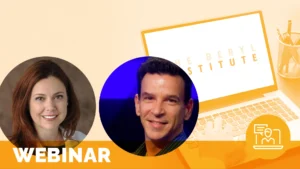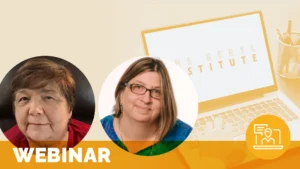Running Buddies

Neurosurgeon, Erik Hauck, saved Kara’s life after an unexpected bleed in her brain. Following her recovery, she inspired a change in his life. What happens when patient and surgeon become friends?
When we think about patient and family Engagement, we usually think of it occurring during the point of care and follow up visits. What happens when patient engagement continues well after recovery? Listen to neurosurgeon, Dr. Erik Hauck, and stroke survivor, Kara Lyven, explore the benefits of becoming “running buddies” after Kara’s recovery from brain surgery. How might this relationship improve clinical care and “close the loop” for the families of both the patient and the physician?
Related content
-
 Patient Family & Community Engagement | Quality & Clinical Excellence | Staff & Provider Engagement
Patient Family & Community Engagement | Quality & Clinical Excellence | Staff & Provider EngagementCompassion Rounds: Connecting with Patients and Families Beyond a Diagnosis
During a hospitalization, medical rounds address the patient’s physical needs but often fall short of addressing emotional and spiritual needs. Compassion rounds is an innovative program that focuses on a patient’s mind, body and spirit. It assists families in finding hope, strength, and peace. The goal is to empower patients and families to learn new
Learn more -
 Patient Family & Community Engagement | Staff & Provider Engagement
Patient Family & Community Engagement | Staff & Provider EngagementCo-Creating Change Using Storytelling
During this webinar members of the Global Patient and Family Advisory Board (GPFAB) will demonstrate how telling stories instead of creating guidelines for healthcare professionals will improve patient outcomes. The GPFAB has created a unique storytelling guide that will help healthcare professionals understand the principles of sharing patient/care partner lived experience through storytelling and how
Learn more -
 Innovation & Technology | Patient Family & Community Engagement
Innovation & Technology | Patient Family & Community EngagementBuilding Trust in Healthcare: Insights from UAB Medicine’s Humanistic Care Study
Join Chris Brainard, Associate Vice President at UAB Medicine, and Amber Maraccini, VP of Healthcare Executive Advisory at Medallia, for a fireside chat on UAB’s innovative strategies to build trust in patient care. Explore how provider behaviors—like listening patiently and showing empathy—improve trust, outcomes, and patient experiences. Learn about the Medallia-Arnold P. Gold Foundation Humanism
Learn more
